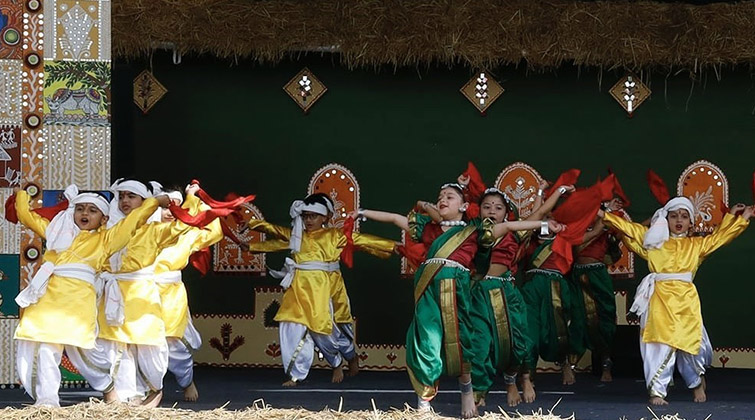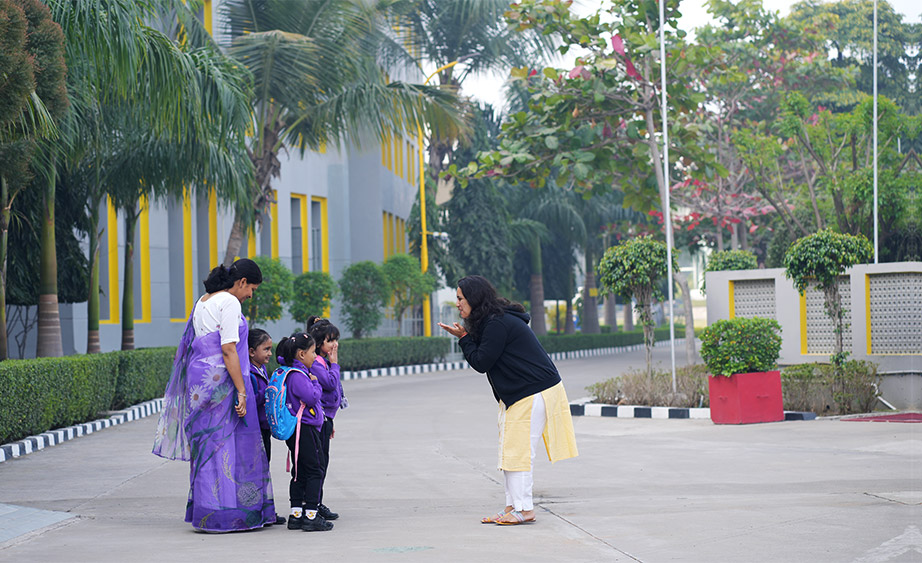
One size doesn’t fit all; it is important to accommodate all individual learners, providing them opportunities to grow at their own pace and optimise their inherent potential. Our curriculum strongly emphasizes children’s intellectual (cognitive), language, social/emotional, physical, creative, and aesthetic development and is based on the latest research and pedagogy.
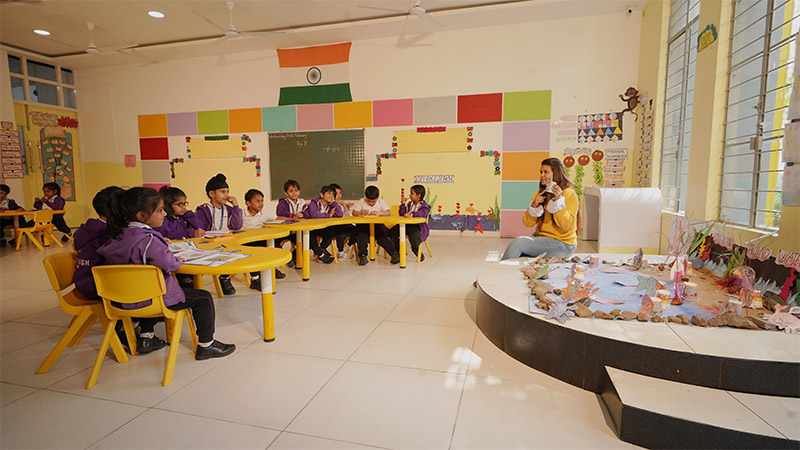
Children can pursue higher needs like self-esteem and critical thinking only after their basic physiological and emotional needs are consistently met, as per Maslow's theory.
Only when the basic physiological needs like food, a comfortable and safe environment, love, and belongingness are consistently met can the children strive to meet their higher needs as per Maslow’s theory that includes – needs of building confidence, self-esteem, critical and creative thinking, which over time establishes their competencies and capabilities.
Here is how we do it:
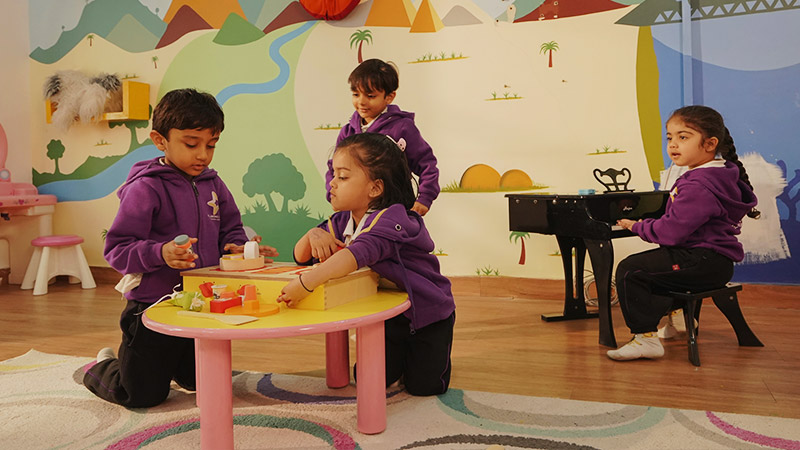
Curriculum tailored to visual, auditory, reading/writing, and kinaesthetic learning styles through diverse activities like movies, music, pre-writing, and outdoor play.
The curriculum is designed to cater to all four types of learning preferences:
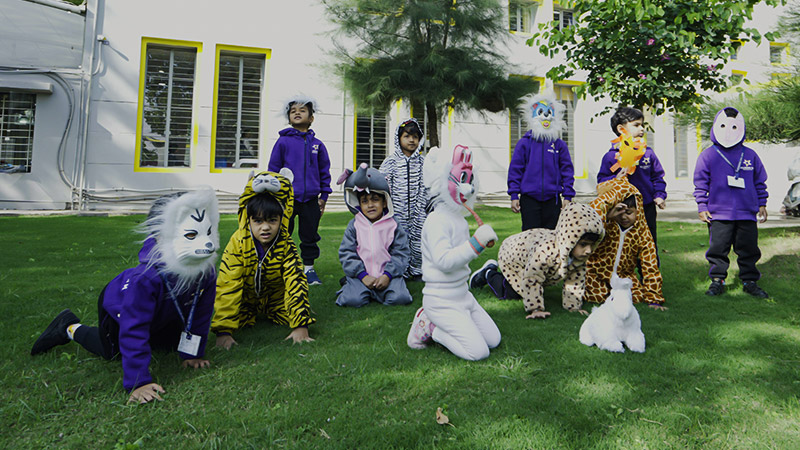
Theory asserts that children develop logical thinking in stages, with reasoning emerging through active exploration and interaction with their environment.
Piaget’s theory suggests that logical thinking develops in stages, and children develop reasoning by exploring and manipulating materials, engaging actively in their environment, making discoveries, and modifying their earlier way of thinking.
On reaching the Pre-operational stage (ages 2 to 7), our learners start thinking, imagining, and learning about the world around them. A plethora of activities form a part of their learning journey during this stage, some of which are:
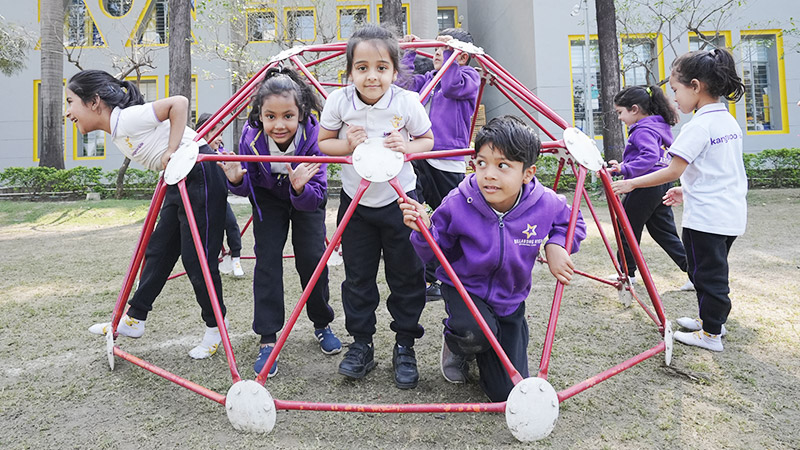
Philosophy emphasizes child-led learning through freedom, respect for individuality, and learning through activity and experimentation.
“Children learn naturally through activity, and their characters develop through freedom.” - Dr. Maria Montessori
The Montessori philosophy dwells on a deep respect for children. This involves respecting the uniqueness of every child and their choices, correcting their mistakes through experimentation, and working at their own pace. Hence, “Freedom within limits” (Montessori) forms a strong foundation for child-led learning.
We implement it through:
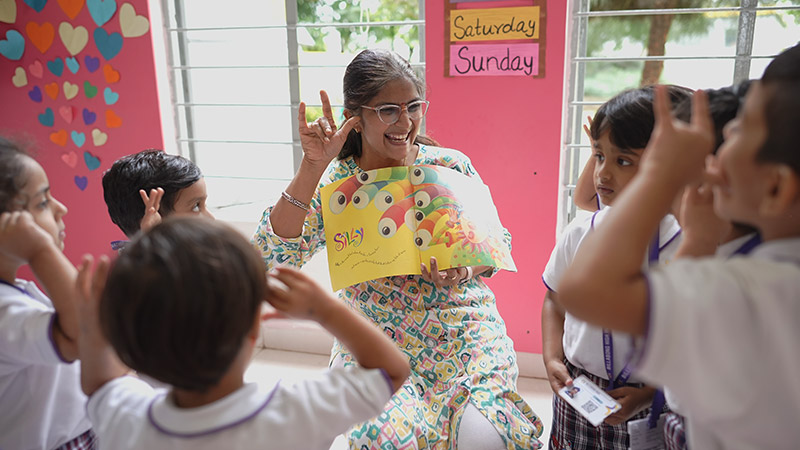
Psychosocial theory aligns individual and societal needs, fostering children's confidence through positive reinforcement, responsibility, and nurturing interactions.
This psychosocial theory meshes individual needs with the needs of society. Resolving the crisis at each stage, children develop character traits that help them become confident. Here is how we put this to practice:
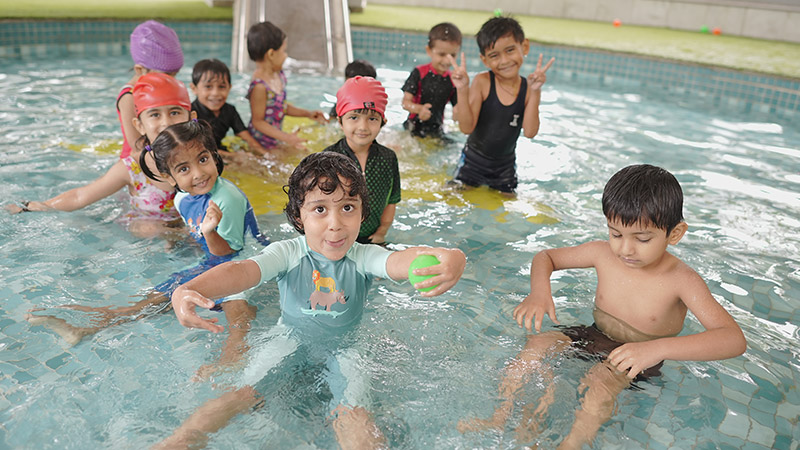
Social interactions and special activities like themed days, field trips, and group games enhance children's learning and social development.
A child’s social interactions with adults and more learned peers can facilitate their learning potential. Special days like Dad & Mom Day, Grandparents’ Day, Pet Care Day, Doctor & Nurse Day and field trips to a bakery, supermarket, or zoo provide great learning opportunities for their social development. Other activities include:
Providing a safe, exploratory environment - conducive for learning
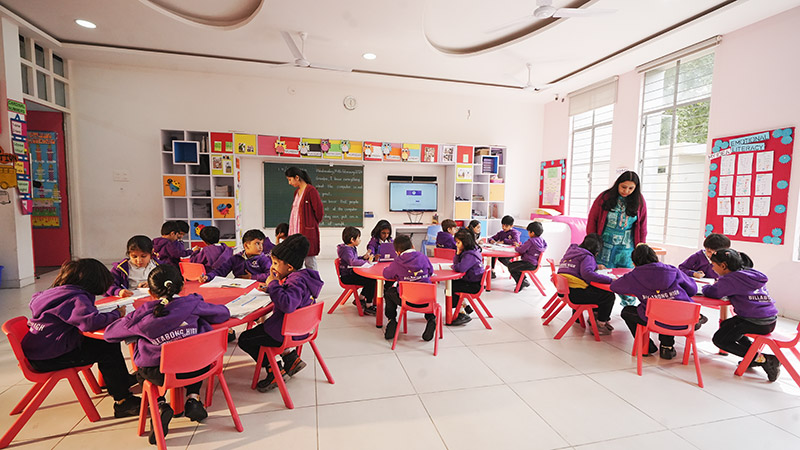
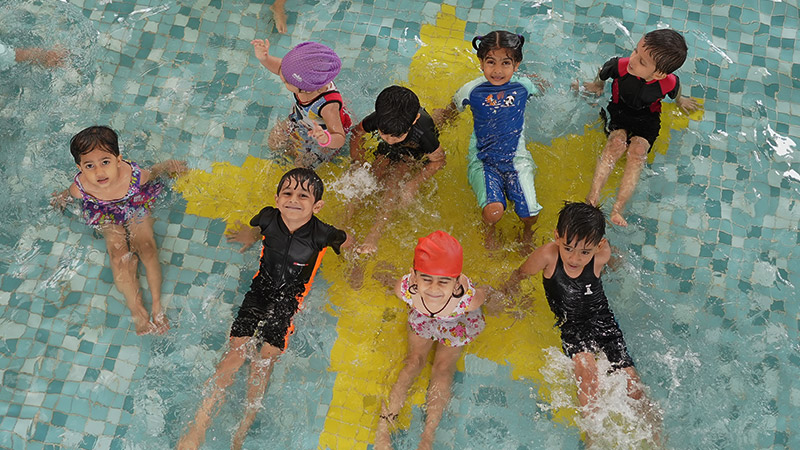
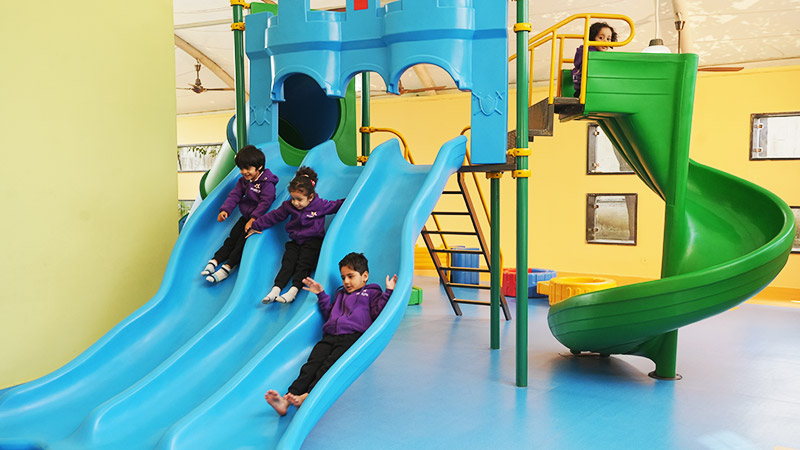
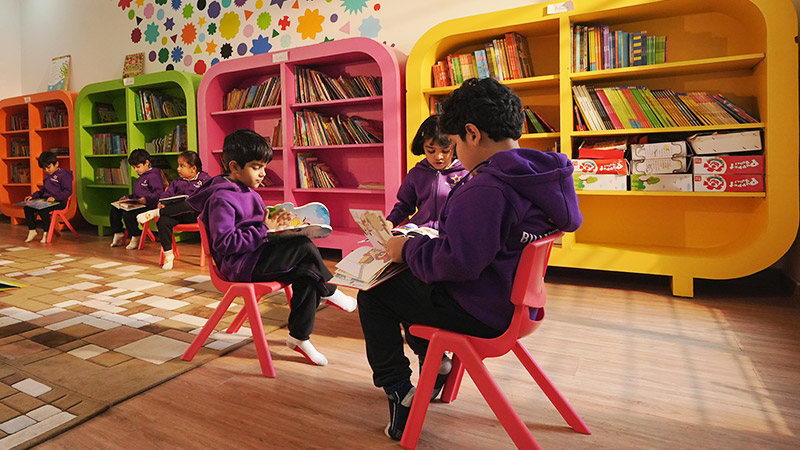
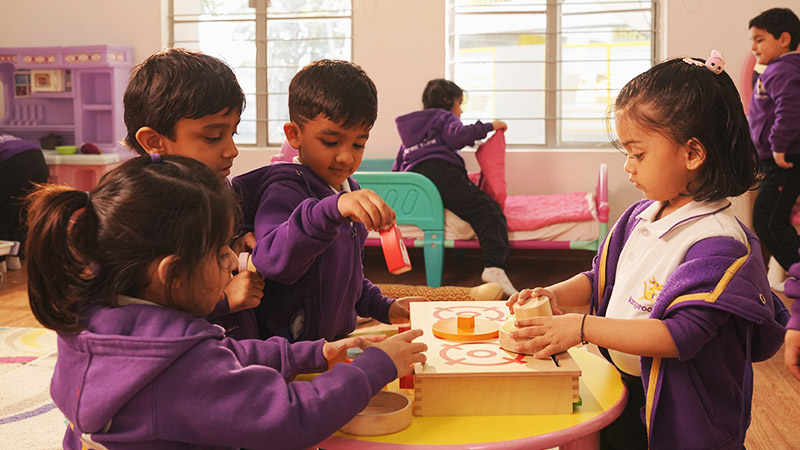
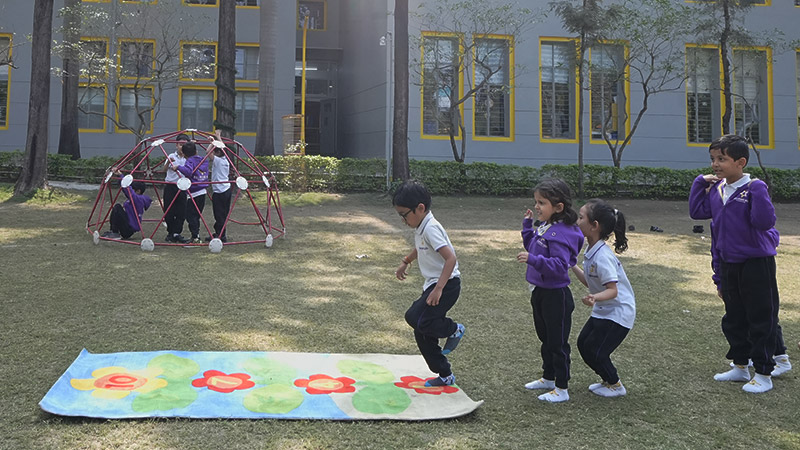
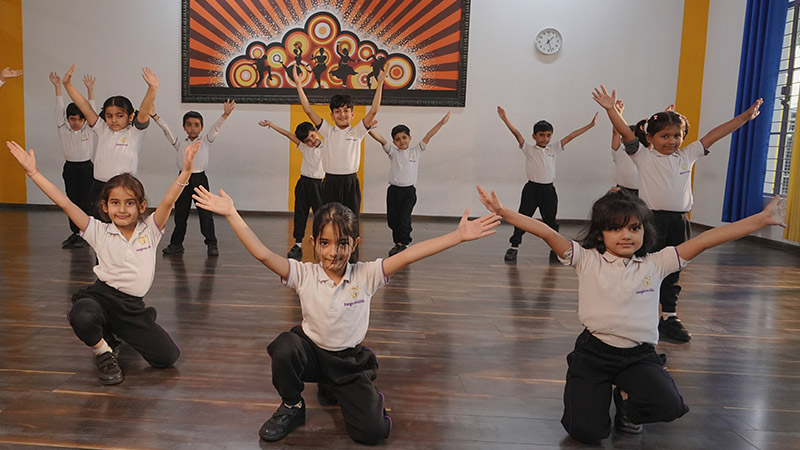
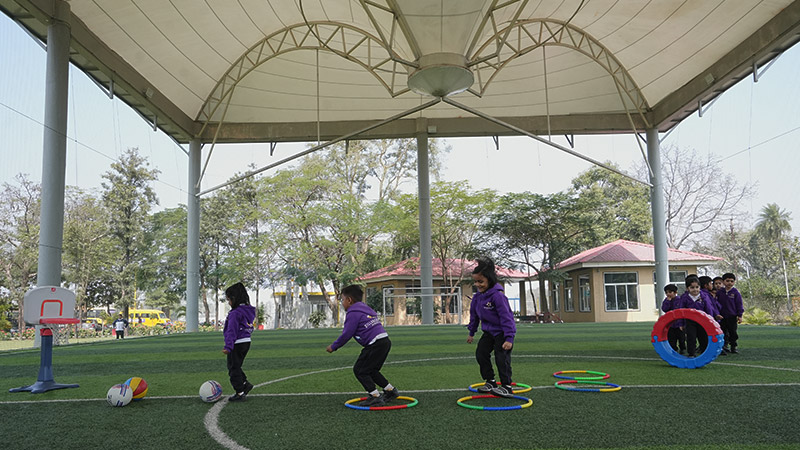
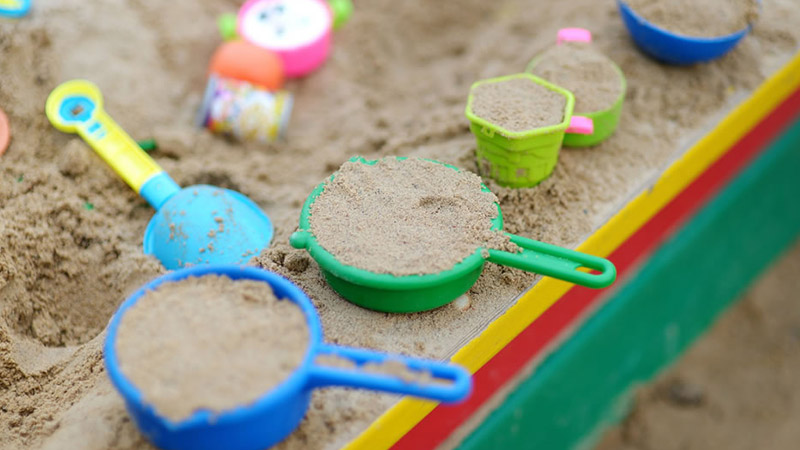
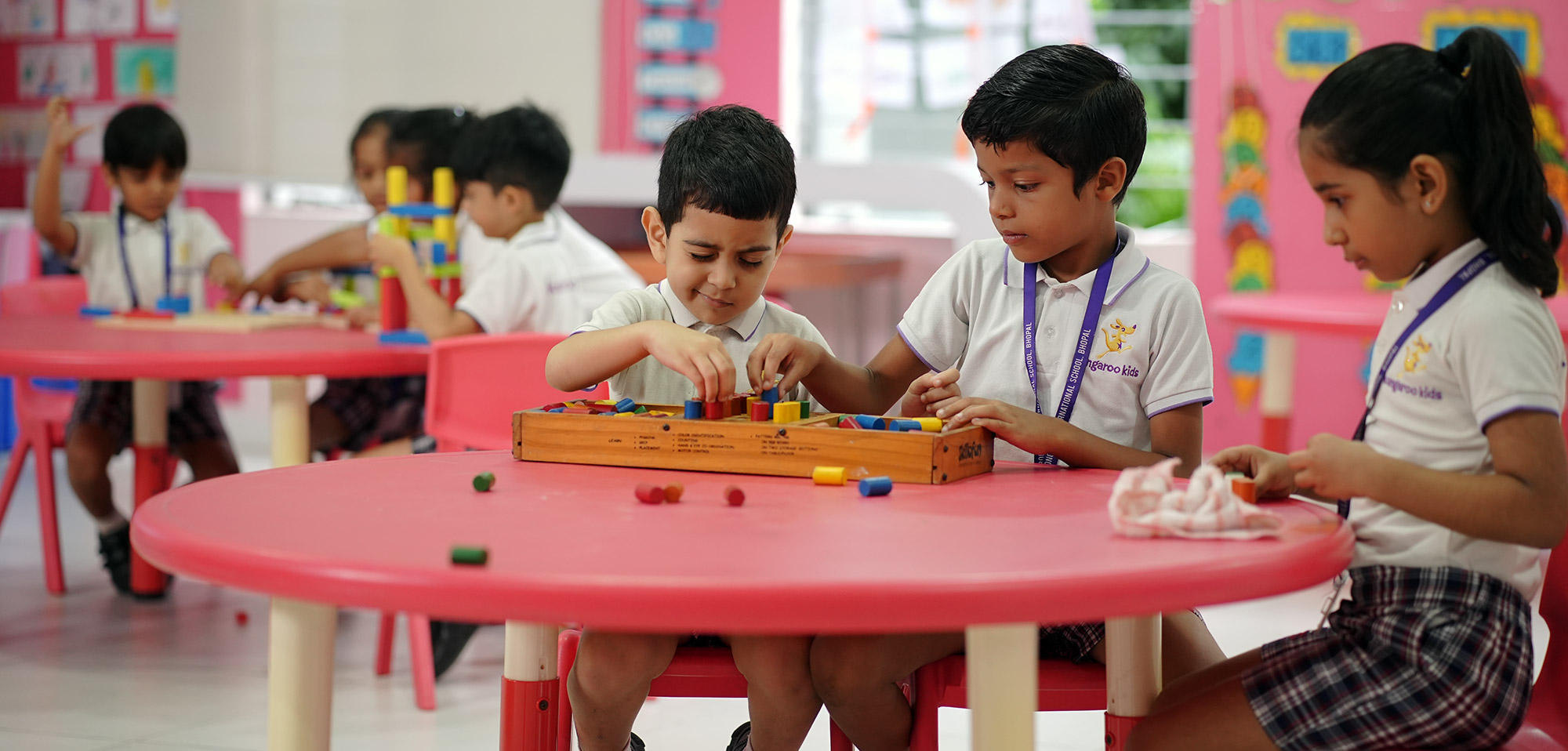
The curriculum is progressive and research-based, always aligning with the changing needs of the world. The curriculum is designed keeping in mind to develop the 9 Future Skills suggested by the World Economic Forum. Developing mental abilities, perspectives, and mastery of skills that will create future problem- solvers, innovators, and entrepreneurs. These are the skills that will stay relevant in the future and will be taken over by mechanization, automation, and technology.
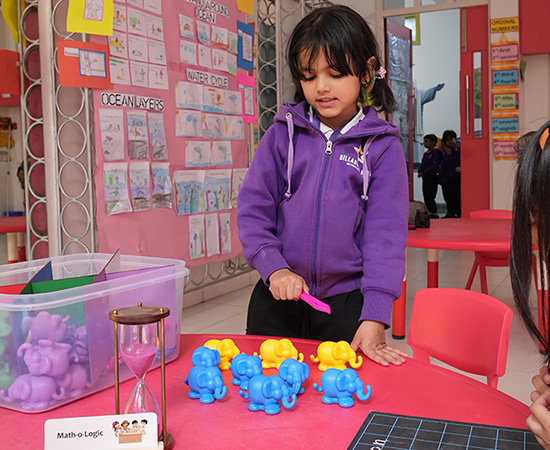
Empowering children's curiosity through guided exploration and self-directed learning.
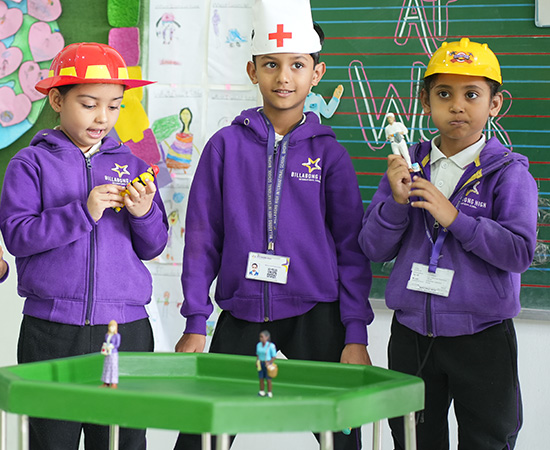
Classrooms feature learning stations for personalized, flexible, and engaging small-group learning.
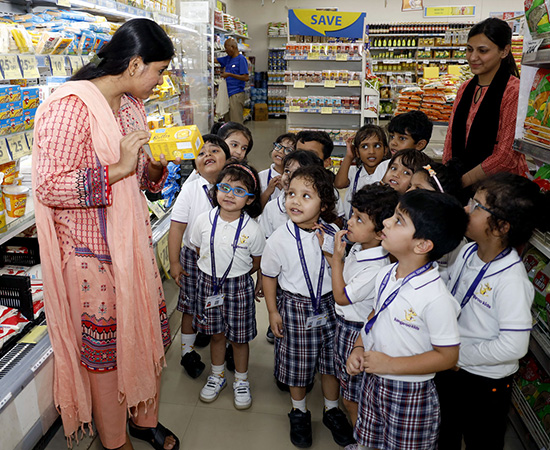
Special days, field trips, and guest lectures, offer hands-on experiences and insights beyond the classroom.
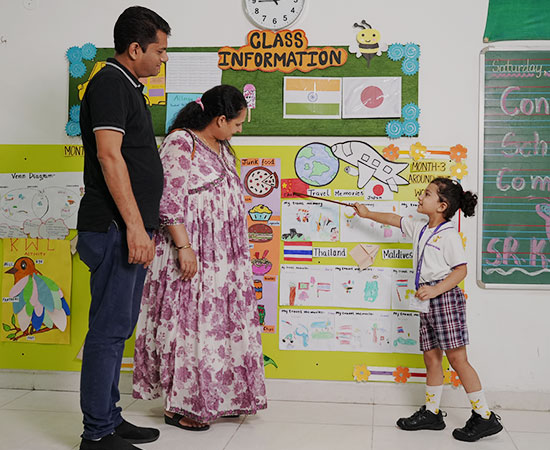
Learner-Led Conferences empowers them to showcase progress, fostering ownership and future readiness.
are essential frameworks for personal and academic growth.
Our children cultivate the 15 Habits of Mind, based on Arthur L. Costa's research, alongside the 9 Future Skills. We emphasize early exposure to habits like perseverance and collaboration, essential for success and fulfillment.
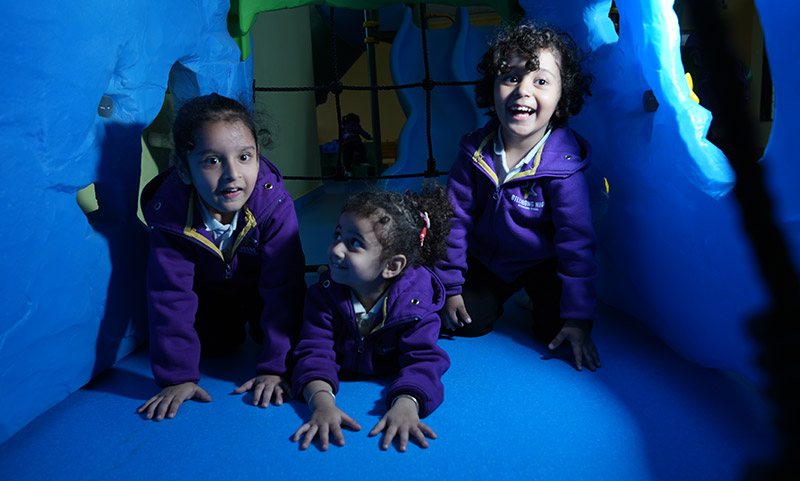
We have a specially curated explicit Emotional Literacy curriculum for our tiny tots. Over the course of a month, children read, comprehend, and discuss different emotions and aspects of social development.
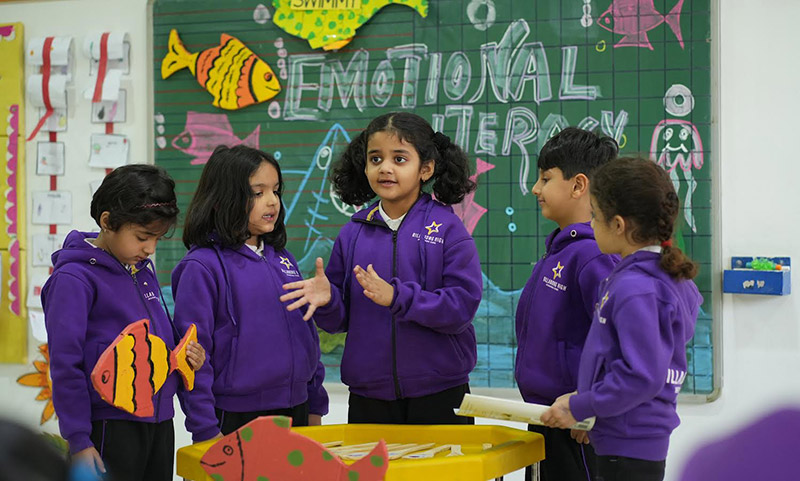
Our thoughtfully crafted Creativity Program invites children to explore their imagination and express themselves through music, dance, art, and drama. Children delve into the elements of music, utilizing instruments to complement melodies and songs. In visual arts, children engage in imaginative problem-solving, tackling projects that encourage the creation of original solutions.
